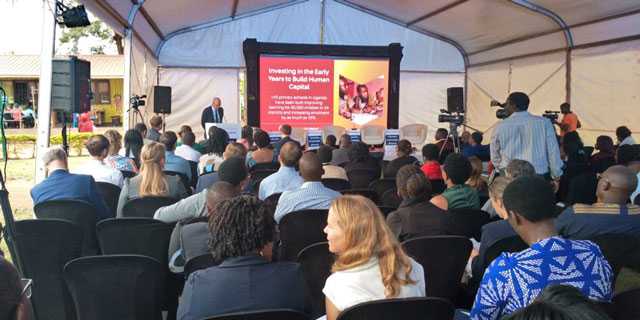Uganda’s economy grew by 6.5 per cent in the fiscal year 18/19, maintaining the rebound in economic activity over the last two years, according to the latest edition of the Uganda Economic Update released by the World Bank.
The 14th Uganda Economic Update report, “Strengthening Social Protection Investments to Reduce Vulnerability and Promote Inclusive Growth” shows that the country’s economy was boosted by strong consumer spending and sustained levels of public and private investment.
The World Bank advised that in order to control shocks and support more inclusive growth, Uganda’s government should expand social protection programs to areas with the highest levels of vulnerability and risk.
“Recent favourable weather and stronger agricultural growth has contributed to the recovery of household incomes and lowered the estimated poverty levels down to those observed in the 2012-2013 fiscal year. However, environmental shocks and climatic risks can quickly reverse this trend.” said the report.
The bank also added that economic growth over the past decade has been increasingly less inclusive and its effect on poverty reduction has also gone down. According to the report, in the period under review, each unit increase in GDP has led to a lower decline in the poverty rate compared to 2000 and 2009.
Also Read: Stop unnecessary tax exemptions, World Bank asks Uganda’s government
To solve this, the stronger focus should be placed on inclusive and equalising policies which will raise the quality of growth and improve productivity.
“This would include support to those who may be left behind and building resilience to shocks that undermine economic growth when they occur and during the time it takes for households to recover,” the bank said.
Interventions such as modernising agriculture and investing in irrigation systems the report suggested, as well as “the expansion of existing social protection programs or the introduction of new ones can help mitigate risks, increase resilience and reduce the negative effects of adverse shocks on vulnerable households”.
According to the report, agriculture employs about 64% of Ugandans and 72% of young Ugandans and accounted for about 45% of exports in 2018-2019. Which is vital to increase household income and consumption which in turn stimulate growth in other sectors.
“The drought and pest infestations in 2016 and 2017 largely explained the increase in poverty incidence between the 2012-2013 and 2016-2017 fiscal years from 19.7 to 21.4% (under the national poverty line), as households engaged in agriculture accounted for most of the increase,” the report said.
